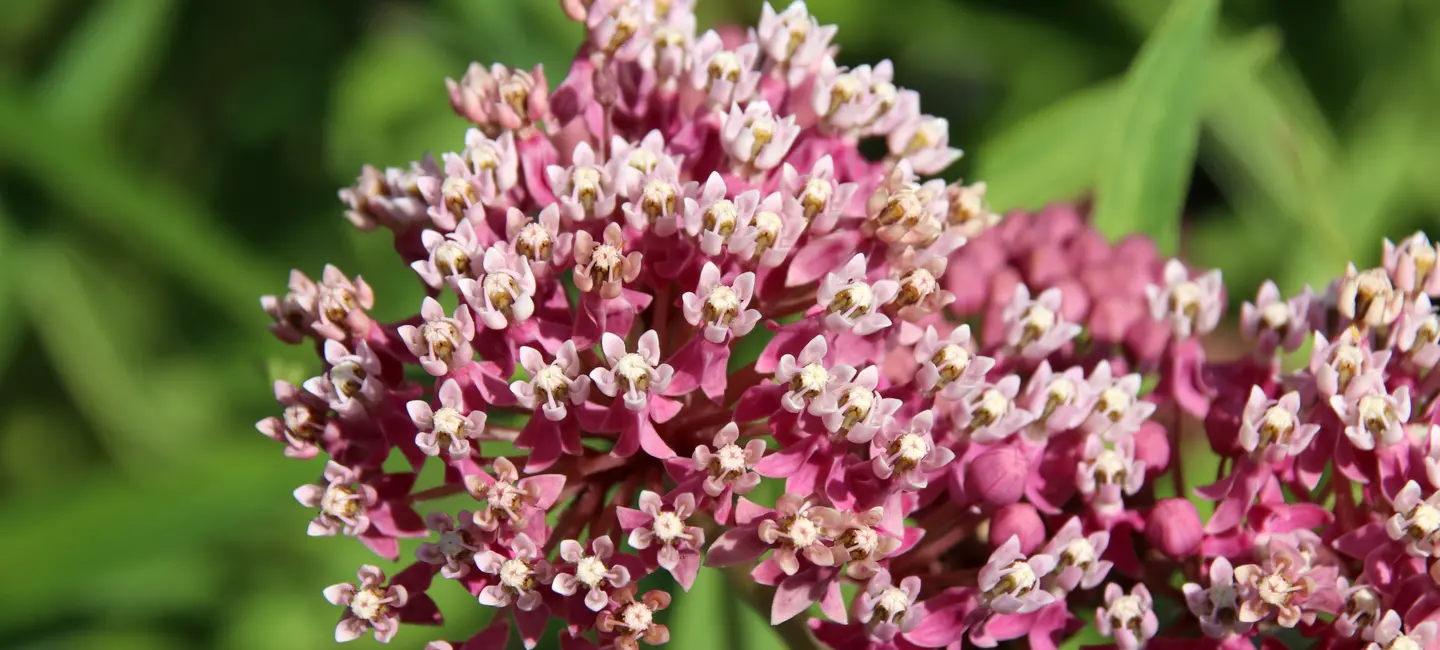
Swamp milkweed (Asclepias incarnata) is a plant native to North America. It's been traditionally used as medicine in homeopathic products.
Swamp milkweed contains powerful chemicals called cardiac glycosides. These chemicals can cause dangerous heart issues.
Despite serious safety concerns, people use swamp milkweed for digestion problems and other conditions, but there is no good scientific evidence to support these uses.
Is It Effective?
There is interest in using swamp milkweed for a number of purposes, but there isn't enough reliable information to say whether it might be helpful.
Is it Safe?
When taken by mouth: Swamp milkweed is likely unsafe. It contains powerful chemicals called cardiac glycosides. These chemicals are similar to the prescription drug digoxin.
Special Precautions & Warnings:
Pregnancy and breast-feeding: Swamp milkweed is likely unsafe when taken by mouth while pregnant or breast-feeding. It can cause serious heart issues.
Heart disease: Swamp milkweed can make a heart condition worse. Avoid use.
Low blood potassium levels: It's unsafe to use swamp milkweed if you have low potassium levels. Avoid use.
Antibiotics (Macrolide antibiotics)
Interaction Rating=Moderate Be cautious with this combination.
Taking macrolide antibiotics along with swamp milkweed might increase the chance of side effects from swamp milkweed.
Antibiotics (Tetracycline antibiotics)
Interaction Rating=Moderate Be cautious with this combination.
Taking tetracycline antibiotics along with swamp milkweed might increase the chance of side effects from swamp milkweed.
Digoxin (Lanoxin)
Interaction Rating=Major Do not take this combination.
Digoxin helps the heart beat more strongly. Swamp milkweed also seems to affect the heart. Taking swamp milkweed along with digoxin can increase the effects of digoxin and increase the risk of side effects. Do not take swamp milkweed if you are taking digoxin.
Medications for inflammation (Corticosteroids)
Interaction Rating=Moderate Be cautious with this combination.
Swamp milkweed might affect the heart. Some medications for inflammation, called corticosteroids, can decrease potassium and other electrolytes. Taking these products together can increase the risk of side effects of the heart.
Quinine
Interaction Rating=Major Do not take this combination.
Swamp milkweed can affect the heart. Quinine might increase how much swamp milkweed stays in the body. Taking quinine along with swamp milkweed might increase the effects and side effects of swamp milkweed.
Stimulant laxatives
Interaction Rating=Moderate Be cautious with this combination.
Swamp milkweed might affect the heart. Stimulant laxatives can cause diarrhea and decrease potassium levels. Low potassium levels can also affect the heart. Taking these products together can increase the risk of side effects.
Water pills (Diuretic drugs)
Interaction Rating=Moderate Be cautious with this combination.
Swamp milkweed might affect the heart. "Water pills" can decrease potassium levels. Low potassium levels can also affect the heart. Taking these products together can increase the risk of side effects.
Herbs that contain cardiac glycosides: Swamp milkweed contains chemicals that can affect the heart. These chemicals are called cardiac glycosides. Using it along with other supplements that also contain cardiac glycosides can increase the risk of heart damage. Examples of supplements that contain cardiac glycosides include black hellebore, foxglove, lily-of-the-valley, oleander, and pleurisy root.
Horsetail: Horsetail increases the production of urine and this can cause the body to lose potassium. Low potassium levels can affect the heart and increase the risk of side effects from swamp milkweed. Avoid using swamp milkweed with horsetail.
Licorice: Licorice can cause the body to lose potassium. Low potassium levels can affect the heart and increase the risk of side effects from swamp milkweed. Avoid using swamp milkweed with licorice.
Stimulant laxative herbs: Swamp milkweed can affect the heart. Stimulant laxatives can cause diarrhea, which can decrease potassium levels. Low potassium levels can also affect the heart. Taking swamp milkweed along with stimulant laxatives might increase the risk for side effects. Examples of supplements with this effect include aloe, alder buckthorn, gossypol, rhubarb, and senna.
There are no known interactions with foods.
There isn't enough reliable information to know what an appropriate dose of swamp milkweed might be. Swamp milkweed contains chemicals that can have serious effects on the heart. Speak with a healthcare provider before use.
Asclépiade Incarnate, Asclépiade Rouge, Asclepias incarnata, Asclépias Incarnata, Ciénaga de Algodoncillo, Rose-Colored Silkweed, Swamp Silkweed.
Information on this website is for informational use only and is not intended to replace professional medical advice, diagnosis, or treatment. While evidence-based, it is not guaranteed to be error-free and is not intended to meet any particular user’s needs or requirements or to cover all possible uses, safety concerns, interactions, outcomes, or adverse effects. Always check with your doctor or other medical professional before making healthcare decisions (including taking any medication) and do not delay or disregard seeking medical advice or treatment based on any information displayed on this website.
© TRC Healthcare 2024. All rights reserved. Use and/or distribution is permitted only pursuant to a valid license or other permission from TRC Healthcare.
